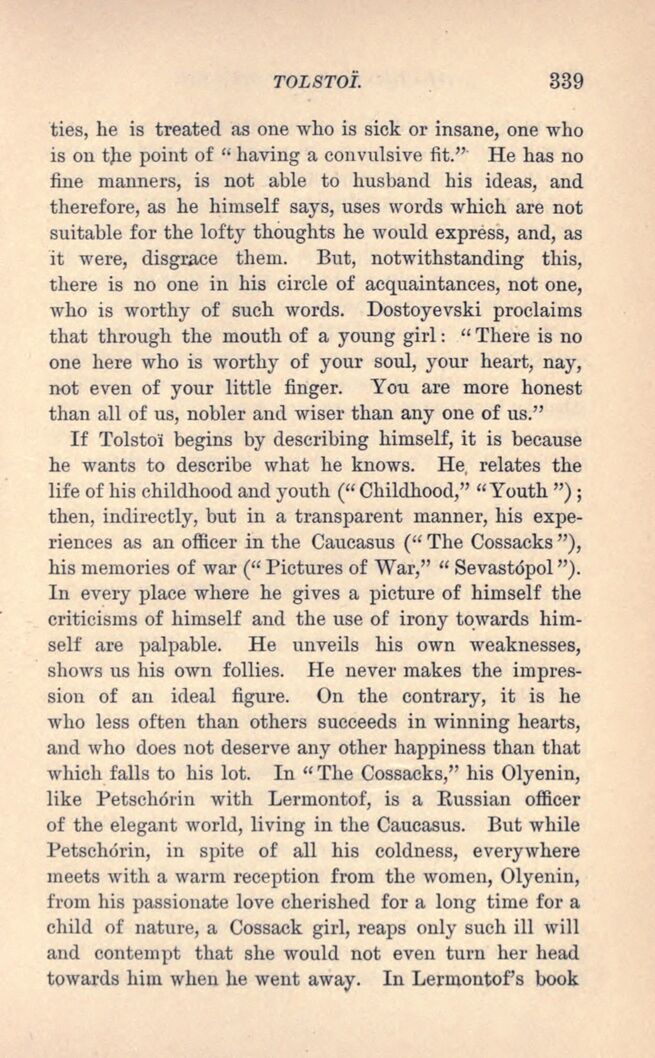
Full resolution (JPEG) - On this page / på denna sida - Impressions of Russian Literature - VII

<< prev. page << föreg. sida << >> nästa sida >> next page >>
Below is the raw OCR text
from the above scanned image.
Do you see an error? Proofread the page now!
Här nedan syns maskintolkade texten från faksimilbilden ovan.
Ser du något fel? Korrekturläs sidan nu!
This page has been proofread at least once.
(diff)
(history)
Denna sida har korrekturlästs minst en gång.
(skillnad)
(historik)
faculties, he is treated as one who is sick or insane, one who
is on tjie point of “having a convulsive fit.” He has no
fine manners, is not able to husband his ideas, and
therefore, as he himself says, uses words which are not
suitable for the lofty thoughts he would express, and, as
it were, disgrace them. But, notwithstanding this,
there is no one in his circle of acquaintances, not one,
who is worthy of such words. Dostoyevski proclaims
that through the mouth of a young girl: “There is no
one here who is worthy of your soul, your heart, nay,
not even of your little finger. You are more honest
than all of us, nobler and wiser than any one of us.”
If Tolstoï begins by describing himself, it is because
he wants to describe what he knows. He, relates the
life of his childhood and youth (“Childhood,” “Youth”);
then, indirectly, but in a transparent manner, his
experiences as an officer in the Caucasus (“The Cossacks”),
his memories of war (“Pictures of War,” “Sevastópol”).
In every place where he gives a picture of himself the
criticisms of himself and the use of irony towards
himself are palpable. He unveils his own weaknesses,
shows us his own follies. He never makes the
impression of an ideal figure. On the contrary, it is he
who less often than others succeeds in winning hearts,
and who does not deserve any other happiness than that
which falls to his lot. In “The Cossacks,” his Olyenin,
like Petschórin with Lermontof, is a Russian officer
of the elegant world, living in the Caucasus. But while
Petschórin, in spite of all his coldness, everywhere
meets with a warm reception from the women, Olyenin,
from his passionate love cherished for a long time for a
child of nature, a Cossack girl, reaps only such ill will
and contempt that she would not even turn her head
towards him when he went away. In Lermontof’s book
<< prev. page << föreg. sida << >> nästa sida >> next page >>